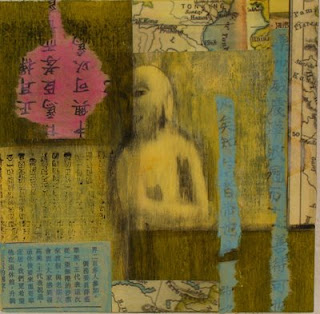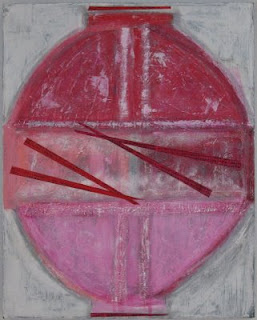 Ah life, there is never a shortage of things to train with! This morning as I was parking my car to go to an appointment, a van backed directly across the road and grazed my passenger door. The woman got out, apologized and hoped there was no damage. Well there was a small scrape and we exchanged info.. All was amicable, seemingly straight forward. Perhaps if the estimate was small enough she would pay for it out of pocket and not go through our insurance companies. Seemed fine to me. Call her later with the estimate.
Ah life, there is never a shortage of things to train with! This morning as I was parking my car to go to an appointment, a van backed directly across the road and grazed my passenger door. The woman got out, apologized and hoped there was no damage. Well there was a small scrape and we exchanged info.. All was amicable, seemingly straight forward. Perhaps if the estimate was small enough she would pay for it out of pocket and not go through our insurance companies. Seemed fine to me. Call her later with the estimate.
By afternoon the story had changed somewhat. She had reported the accident and was now saying that perhaps it was not all her fault. After all we were both backing up (me in my parking space.) As this second part of the story unfolded I could feel the irritation rise in me. I was spending a bunch of time on this (talking to her, going to the claim centre, making two more claim calls). And where is the teaching in this I thought to myself. As the irritation rose I could see it plainly "you know it's easy to be nice when things are going well but not always easy when the going gets tough." I knew not to say anything unpleasant to the woman, yet I could hear the irritation in my voice. "I let her know I was feeling frustrated at the time I had to put into it and the fact it seemed like she had changed her story." I could see the potential for this to ruin the beautiful sunny afternoon. And then I could see my work was to let it go... To do what needed to be done and let it go.
I could see that propensity to retell the story to myself, to my partner. I could see the self cherishing (I am right, she is wrong point of view I was holding on to). "How could she change her story like that!" I could see how the mind wanted to go over and over it, in some perverse way, in some need to understand or resolve what was really beyond resolution at this point in time. Let it go....And as the minutes ticked on and other activities filled the space I could see the truth of change and impermanence as the incident slowly faded in it's intensity.
I could think about her point of view, maybe she can't afford this and hopes she won't have to pay. Maybe she's worried that her insurance will go up. Whatever her concern is, within the space of an hour or two she has changed her story and even though I didn't know her I felt betrayed. When I looked I could see that this is what we humans so often do. When something is not to our liking we run our mind over and over it, reshaping it into something more palatable. We talk it up a bit. Our friends commiserate with us. And before long we're standing on the other side of the fence. It is so easy to get confused. It can be especially easy to get confused if there is some money involved as in this case. It was nothing personal. It was not even an instance of overt lying to get what you want. It was the mind playing with circumstance.
And so there it was, the Dharma lesson for the day. For me, while I didn't like being hit, the irritating part was the woman's behaviour, her little switcheroo of position. From this I could see my real work was to do what needed to be done, attend to the claim centre activities, and get on with the day, not to get stuck in the cycle of hashing over the unresolved details, not to feel disappointed in human nature. To be able to say, this is what we do as humans sometimes, we try and wiggle out, self justify. We all do it in places, big or small. Sometimes there is only so much truth we can take and then we jump in the back seat and have a little roll around with delusion.
So the story for today ends with a very nice claims agent from my insurance company who believed my story and says ING has an "I believe you" policy and it will not cost me anything. I still have to give up some time to go through the process with the government insurance agency and the auto body shop. The possibility while slim, still exists that I could be found partly responsible if the location of the damage doesn't indicate fault and while this feels irritating it is without penalty.
I could see how quickly my anger rose and realized how vigilant I need to be with that. But all in all it was a fine day. I chatted with some nice people and was reminded that greed, hatred and delusion are often lurking around the corner. That is part of our human condition and we need to be ready with our vigilance, wisdom, equanimity and our kind heart. If we keep those in our spiritual tool box, truth and happiness are never far off.
I love photos that play with truth and illusion. I took the one at the top of the page in Vancouver's Gastown. It makes me think about what is real and what is not. What do we see, what is reflected back? And what is that lens we're looking through?
 I was thinking about "blind spots" this morning as I was sitting. We all have them, those things that we do that we just don't see. Often everyone else sees them but us. You see mine, I see yours, but we don't see our own. It's a term that makes me think of driving (and perhaps that's where it comes from?). You know that spot where you can't see, just over your shoulder, where the rear view mirror doesn't show you what's there. It's the spot where you need to turn and look, the spot that can easily result in an accident if we fail to check it. A lot like life really.
I was thinking about "blind spots" this morning as I was sitting. We all have them, those things that we do that we just don't see. Often everyone else sees them but us. You see mine, I see yours, but we don't see our own. It's a term that makes me think of driving (and perhaps that's where it comes from?). You know that spot where you can't see, just over your shoulder, where the rear view mirror doesn't show you what's there. It's the spot where you need to turn and look, the spot that can easily result in an accident if we fail to check it. A lot like life really.





















